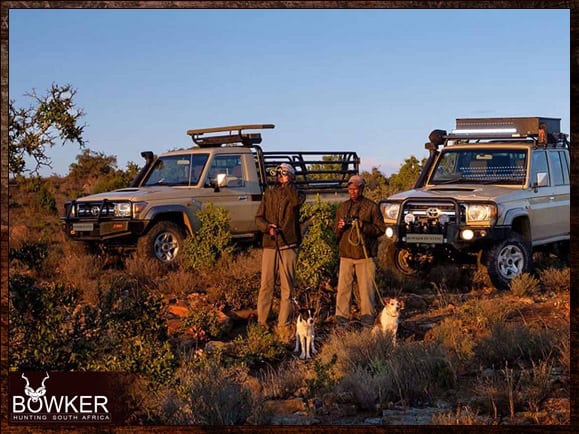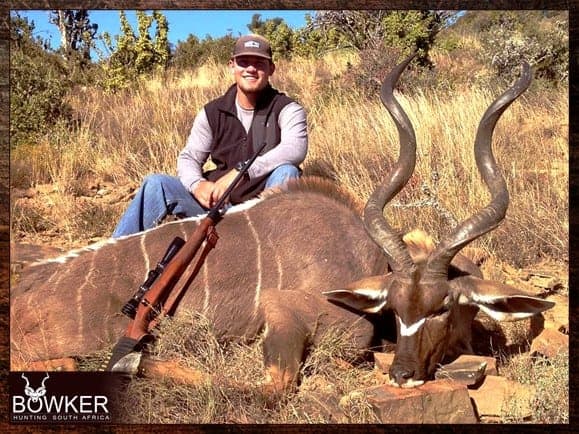Are you considering an African Hunting Safari for Plains Game? Are you overwhelmed and don’t know how to choose an African Outfitter for an Africa-guided hunt?
Table of Contents

How to choose an African outfitter.
What is the Real Cost of my Safari
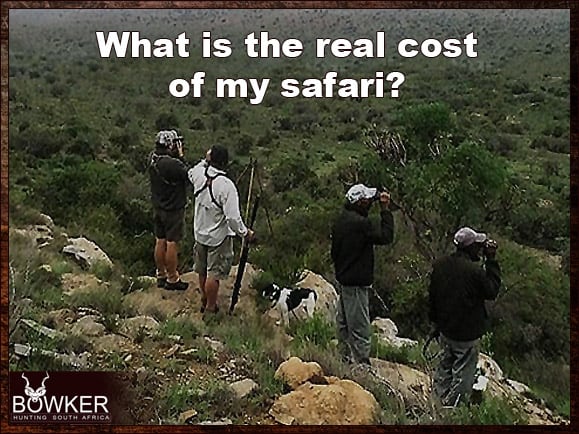
Questions to ask when choosing an African outfitter
- Is the hunt cost based on a daily fee plus a trophy fee or a hunting package?
- What is the daily fee for observers and the gratuities policy?
- How many days will my African guided hunt be?
- Should I be using my taxidermist or a taxidermist in Africa?

Is the hunt cost based on a daily fee or a hunting package?
The cost of hunting in Africa is structured in two ways:
A Day Fee plus an individual Trophy Fee.
- A day fee is paid, and clients select animals and pay the trophy fee for each animal.
- Ask for the day fee and the trophy price list.
A fixed all-inclusive African Hunting Package consisting of trophy animals.
- Hunters select a package of animals offered by the Outfitter at a fixed price, including the day and trophy fees. The Outfitter offers hunting packages consisting of trophy animals that occur in significant numbers in that area, ensuring a close to 100 percent success rate.
- These packages are always the most efficient way to start for first-time African hunter.
- The hunter can always add trophies at the end of the hunt or when the opportunity presents its self. Package hunters should also obtain a trophy price list in case they decide to add animals.
The day fee or all-inclusive African hunting package should include the services in the list below without any additional costs.
- Your Professional Hunter at all times
- Accommodation, meals, and drinks
- 4x-4 hunting vehicles and fuel for the duration of the safari
- Transport for pick-up and drop-off at the final destination airport
- Daily laundry
- Skinners, trackers, and dogs for retrieval of wounded animals
- Use of rifles, scopes, and ammunition (Most outfitters will require payment for the use of rifles)
- Field preparation of trophies and delivery to the taxidermy
- All taxes and permit fees

Inquire if there are any services that will incur an additional cost.
What is the daily fee for observers and gratuities policy?
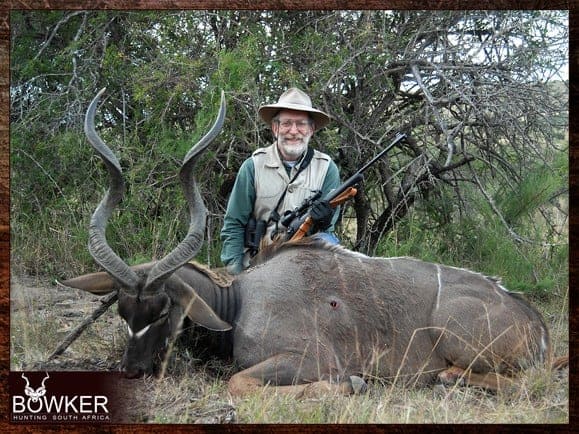
- If you bring an observer, you must determine the day fee for observers on your African guided hunt.
- Also, find out the expectation for gratuities for the guide, trackers, and camp staff from your Africa outfitter.

Choosing your African Outfitter -How many days will I be hunting?
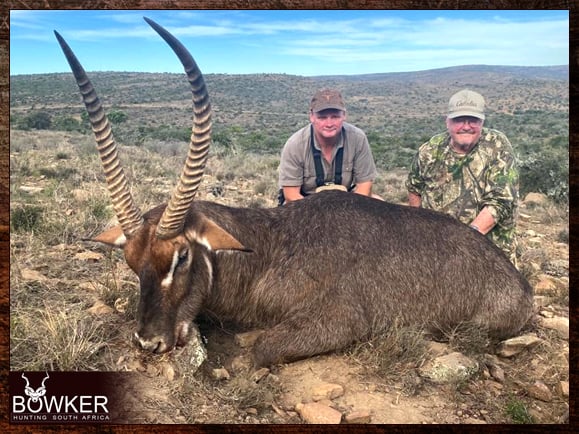
- Ascertain if the arrival and departure days are billed at the agreed day fee or are excluded from your African guided hunt.
- Is there sufficient time to obtain all the required trophies, and what are the Outfitter’s success rates? How many clients did not complete the package in the last three years?

Should I be using my taxidermist or a taxidermist in Africa?
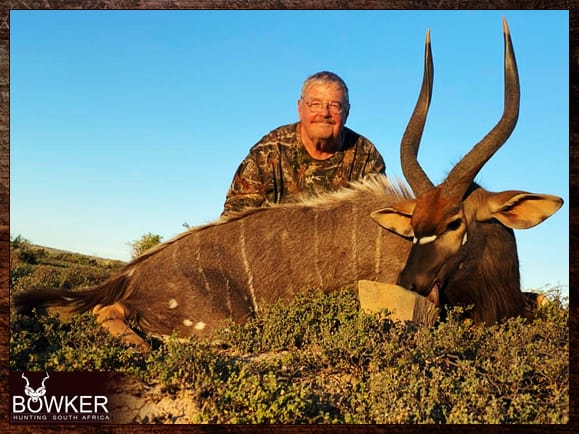
Another key consideration is which taxidermist to use. Should you utilize a taxidermist in your home country or a taxidermist in southern Africa?
You may want to support your home country’s taxidermist. Nevertheless, taxidermy has come a long way in South Africa, and many South African taxidermists have trained in North America.
Taxidermy is far cheaper in South Africa, and local taxidermists work exclusively on plains game.
Obtain a quote from your Outfitter and check that against both your home country and South African taxidermists. Be aware that it is common practice for South African taxidermists to give brokerage for a referral.
How to Determine the Suitability of the Outfitter
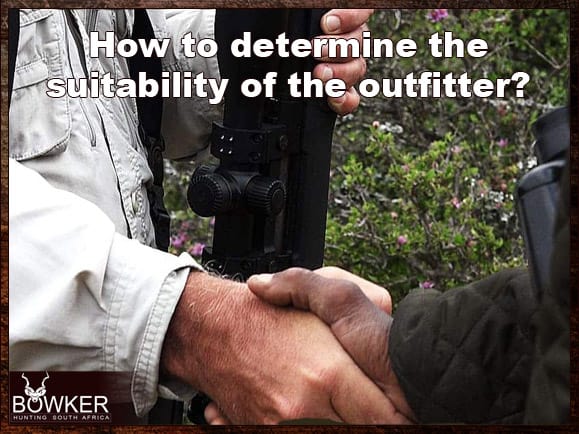
Questions to ask when choosing an African outfitter
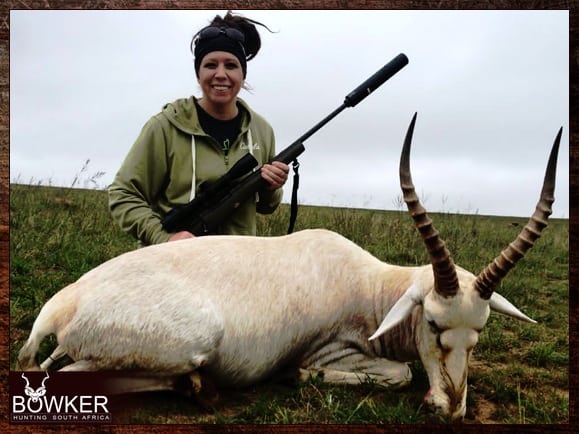
- Shall I deal directly with an African outfitter or an agent?
- How long has the African Outfitter been in the hunting business?
- How many hunts does the Outfitter do in a year?
- Will you be the only hunting party in camp?
- Will the Outfitter be present with you in camp, and who will be your guides?
- Does the Outfitter hold the required licenses?

Shall I deal directly with the Outfitter or an agent when choosing an African outfitter?

An outfitter is a licensed business that provides services for African guided hunts.
Guides are hunting guides who scout and accompany hunters on guided hunts.
Some prospective hunters deal directly with outfitters to evaluate African outfitters’ offers and decide which best fits them.
Agents are being used in the United States by many African outfitters. The agent helps the client in choosing an African outfitter.
There is nothing inherently wrong with using an agent. Prospective hunters who use an agent should understand the relationship between the agent and the Outfitter.
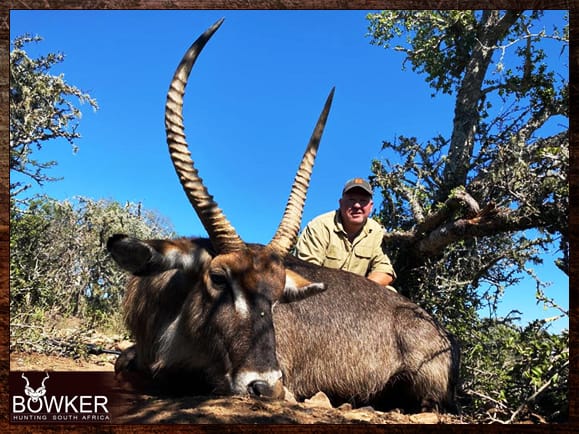

How long has the African Outfitter been in the hunting business?
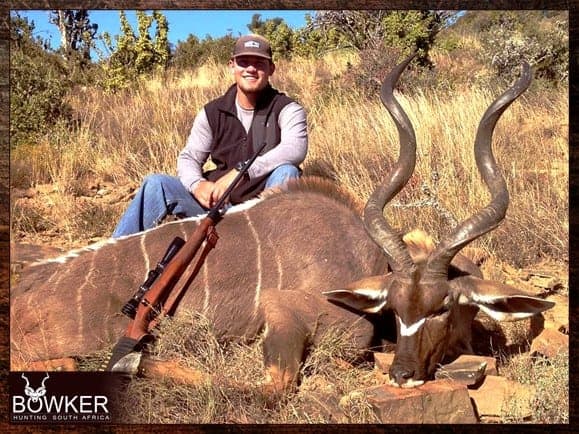
Any hunter wishing to visit Africa for the first time should be considered an Africa outfitter with a good track record. Make sure you get a list of references.
Also, consider asking for the names and contact details of the last three hunting parties in the camp. Contact those hunters and ask them to share their experiences.
Another good source of reference is www.africahunting.com.
This is the largest African hunting forum and allows hunters to ask the community for private feedback to choose an African outfitter.
The forum consists of well-informed people who hunted in Africa before and can give you impartial advice for choosing an African outfitter.
Many additional resources and blogs are available, discussing how to go about planning an African safari and choosing and selecting an African guided hunt.

How many hunts does the Outfitter do in a year?
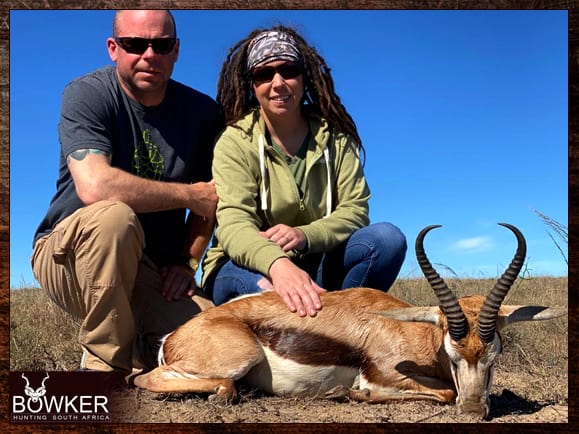
An overhunted area is not what you will be looking for. Ask your Outfitter how many hunting parties are hunting the core area in a season. Ideally, it should be between 10 and 20 hunting parties per season.

Will you be the only hunting party in camp?
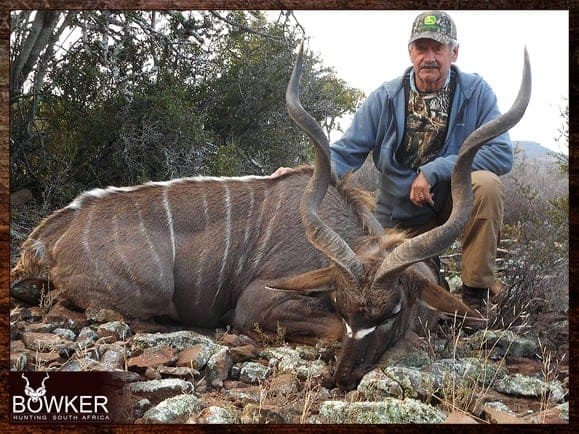
This is an important question. Many hunters will want some exclusivity to enjoy the hunt as a closed group. Being the only hunters in camp ensures that you will not see any other hunters while out in the field.
For some of the large outfitters, it will not be possible to have any exclusivity. This may be an essential aspect for some hunters for choosing an outfitter for an African-guided hunt.

Will the Outfitter be present with you in camp, and who will be your guides?
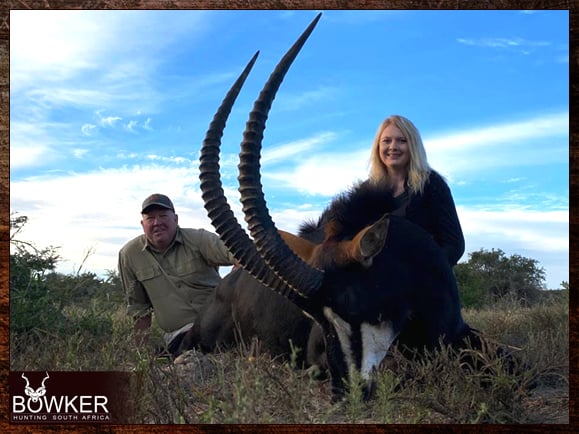
You may also want to consider if your Outfitter will be present at camp or if there will be only your guide with you. It is an advantage to have the Outfitter in camp with you.
He will have a good feel for what’s happening and will be able to meet the hunting party’s expectations. It’s also not unusual for the Outfitter to be the guide for one of the hunting parties.
Also, establish if each hunter will have their guide or if two hunters will share a guide. This will have a cost implication. Will your Outfitter be one of the guides?
What experience do the other guides have, and how long have they been guiding? How long have the guides been working for the Outfitter, and how much of their guiding has been in the area you will be hunting? Who your guide will be is essential for choosing an outfitter for an African guided hunt.

Does your chosen Outfitter hold the required licenses?
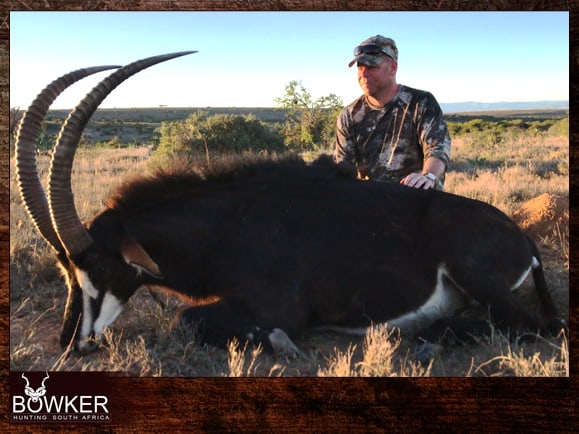
A valid and up-to-date outfitter license is a requirement. Ask for the certificate. It is not unreasonable for you to expect that the Outfitter is also a qualified guide. This qualification is referred to as a professional hunter or “PH” for short in South Africa.
My Outfitter and professional hunter license for South Africa.
Did the Outfitter grow up in the area?
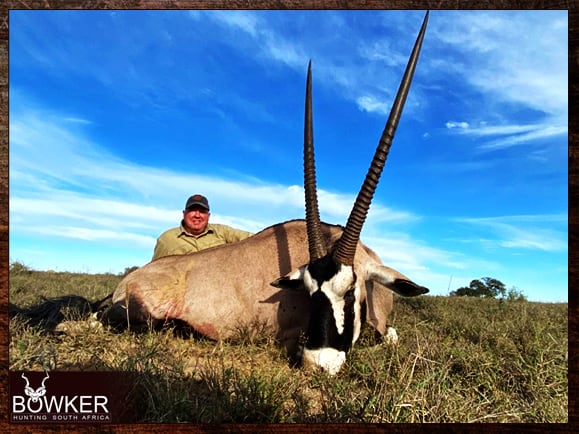
Another factor you may wish to consider is if the African Outfitter grew up in the area and is part of the local community, he will know the adjacent area and landowners.
This has many benefits, including gaining access to the nearby farms at short notice and following up with wounded animals.
Most land is privately owned in South Africa. He will also have an intimate knowledge of the whereabouts of animals outside the immediate area being hunted.
Your Outfitter should be able to speak all the local languages, including the local African dialect.
This is important when dealing with camp staff and the trackers.
When an animal is wounded, clear and effective communication with the trackers can make a difference.
Expert trackers working in the area can be important, from spotting trophies at a great distance or in a thick brush and leading the stalk.
This is an overlooked aspect of the African outfitting business.
How to Evaluate the Hunting Area and plains Game
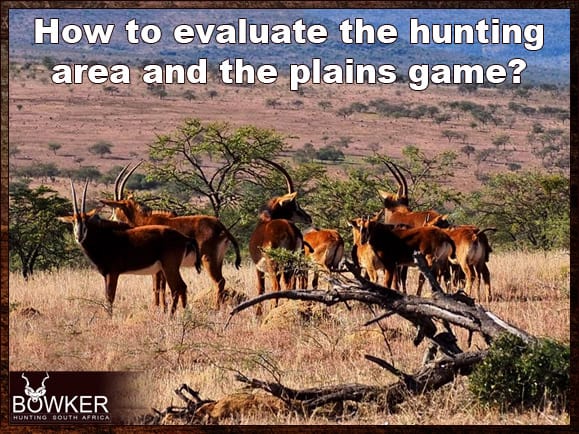
Questions to ask when choosing an African outfitter
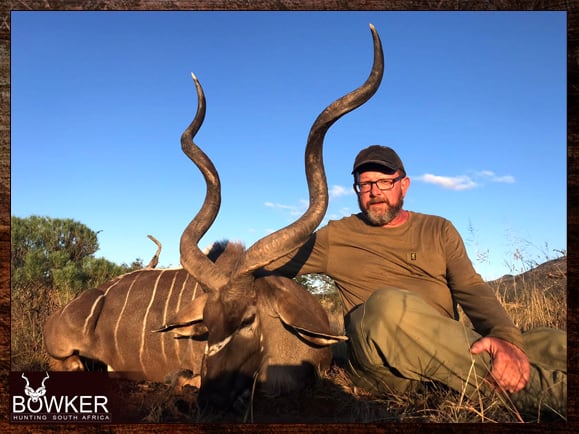
- Who owns the hunting area, and what size is it?
- Is the area you will be hunting in low-fenced or high-fenced?
- Where is the lodge situated in respect of the hunting area?
- What is the nature of the terrain you will be hunting?
- Are you looking for real wilderness hunting?
- How many animals of the species you want to hunt for are on the property?

Who owns the hunting area and what size is it?
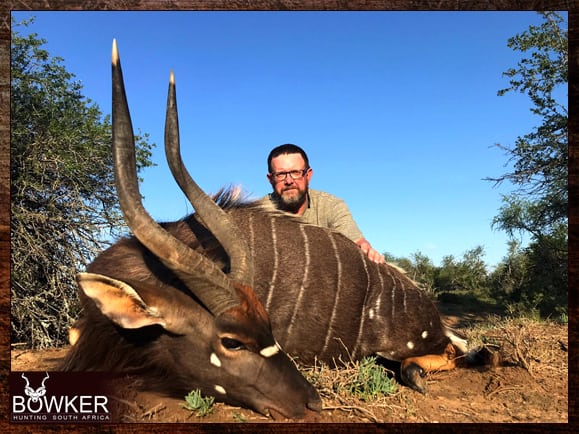
Enquire if the core area is owned or leased by the Africa outfitter. This is an essential aspect of choosing an African outfitter.
The hunter conducting his due diligence should understand the size of the home property. A reasonable minimum size would be around 20,000 acres.
The size of the hunting area is essential for choosing an African outfitter.
Hunting will be mostly in the core area. Access to adjacent and surrounding areas is essential.
There will always be one or two trophies you might be struggling with; access to the nearby area will increase the probability of getting your trophy wish list.

Where is the lodge relative to the hunting area?
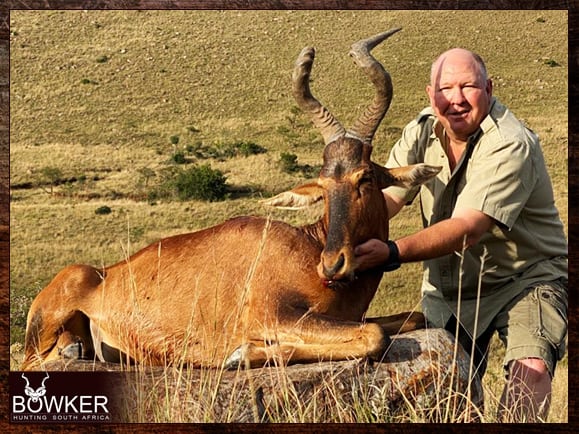
The lodge should ideally be situated in the middle of your hunting area. Driving an hour to and from your hunting area should be avoided. The hunter should also understand how long it takes to get to the African outfitter’s other areas. This is also a crucial point when you are choosing an African outfitter.

Are you looking for true wilderness hunting?
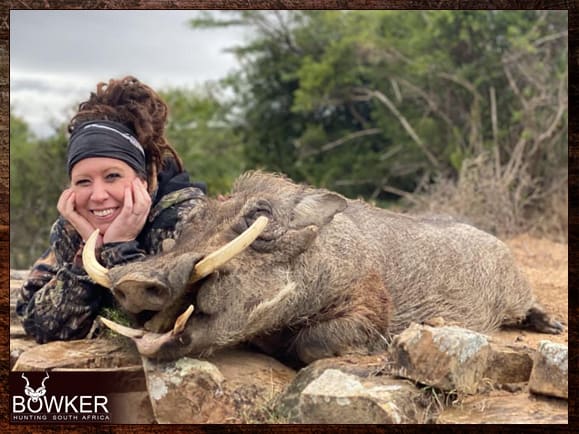
If you are looking for a true wildness safari, you must hunt in areas like Zimbabwe and Tanzania. In these areas, you will be hunting without any fences or human-made obstacles like a barrier in the form of public roads.
This remoteness comes at a cost, with expensive day fees being mandatory and extra time and cost to get to these wilderness areas. These costs come before you have even seen an animal. For many, the cost and time are prohibitive.

Is the area you will be hunting in high-fenced or low-fenced?
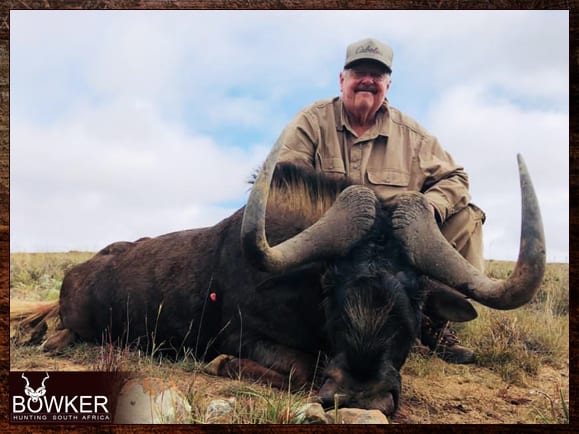
Most first-time African hunters on a budget will end up in Namibia or South Africa. You will struggle to find a property in South Africa or Namibia with no fences.
Hunting properties are high-fenced or low-fenced.
Areas that do not have high fences but four-foot barbed wire fences.
Designed to stop sheep and cattle movement, most wild animals can move and roam at will.
Certain species will be held in check. Typical examples are Wildebeest and Blesbok.
These low high fenced areas belong to the local farming community.
Outfitters with a low-fenced core hunting area are farmers with a dual income.
The majority of hunting in South Africa is done behind high fences.
The size of the high-fenced areas varies greatly. High fences are necessary for outfitters from an economic standpoint.
For these typically larger high-fenced outfitters, outfitting is their only source of income.
These larger high-fenced outfitters need to replenish trophies due to hunting and genetics.
This has made South Africa the most affordable safari destination in the world.
Nowhere else can you hunt as many species at a cost not dreamed about two or three decades ago?

What is the nature of the terrain you will be hunting in?
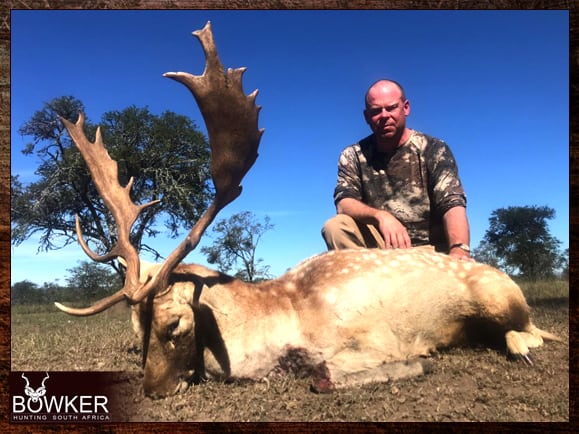
You should consider the nature of the terrain from two different angles. The first relates to the hunting parties’ physical capabilities.
Ask for the length of the stalks and how much walking will be required each day. Enquire as to the difficulty of walking. Are there steep canyons and rocky hillsides to climb?
It would be best if you inquired about the variability of the terrain. It’s always good to have different types of topography to hunt with your African outfitter.
A mixture of thick bushes and canyons as well as savanna and rolling plains.
This will make the safari more exciting, and the area will contain more endemic species, which always makes for the best hunting. Many hunting areas are plains or very thick bushes.

How many animals of the species you want to hunt for are on the property?
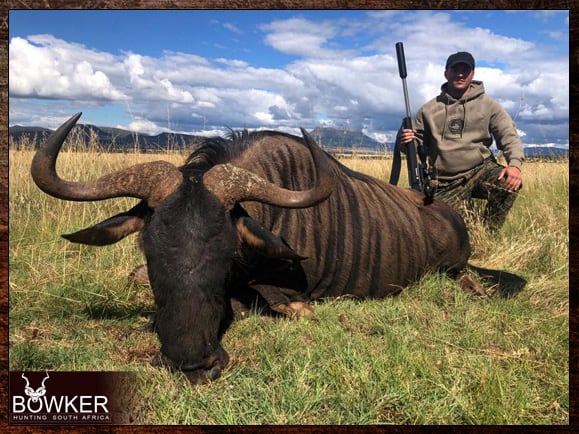
Ask the Africa outfitter how many animals of individual species are in his hunting area and if the species are endemic to the area.
If the animals are endemic, the quantity and quality will be higher.
It is also good to ask for the ratio of females to males. A high male ratio would suggest a “put and take” practice.
For animals that are not endemic, you should understand when the family group was introduced.
How widespread are these animals, and how many are there? Ideally, there should be a few hundred for a great hunting experience.
